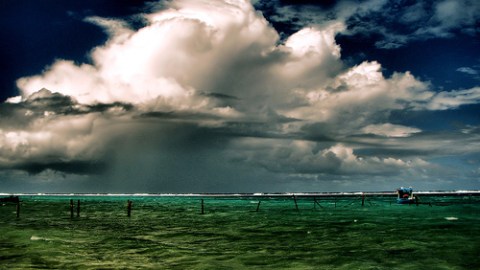Turning the Focus to Alternative Energies

Sign up for Big Think on Substack
The most surprising and impactful new stories delivered to your inbox every week, for free.
Achieving sustainability can be a tricky balance for businesses. Even if adopting sustainable practices makes clear sense for the long-term, Copenhagen Business School professor Bjørn Lomborg notes that businesses face the “obvious negative consequence” of significant financial investment without short-term rewards. Plus, he says, there is the possibility that “it may make you a lot of friends right now, but later on, when it becomes obvious that this was really cheap, that this was not effective, you might have a much bigger problem.” Lomborg suggests that businesses need to look at where they might get the most bang for the buck and take steps that aren’t necessarily the most showy—but which will do the most good in the long run.
Carbon emissions cuts alone are not the answer, says Lomborg. He thinks we should instead be focusing our energies on developing alternative sources of energy, like solar and wind. If we cut carbon by too much, it could leave the world less capable of dealing with all the problems. “It will have less riches, less infrastructure, less ability to tackle those problems compared to a world where we leave more of the global warming problem, but also many more resources to tackle that problem,” he says.
What does Lomborg propose investing in? Climate engineering, for one. Marine cloud whitening is an approach that makes the oceanic clouds just a tiny bit whiter by putting sea salt up into the atmosphere—reflecting more sun energy. How feasible would such a project be? “It would take about 2,000 ships, unmanned to go around mostly in the South Pacific, spray up sea salt into the atmosphere. It would have absolutely no impact in people’s lives, although we do need to look at whether it would have impact on precipitation patterns, possibly on the monsoons,” says Lomborg.
These interviews are part of a series on business sustainability, “Balancing People, Planet and Profit: The Future of Business Sustainability,” sponsored by Logica. So far, the series has featured interviews with Peter Brabeck, the Chairman of Nestle; Gro Harlem Brundtland, Special Envoy on Climate Change, U.N.; Ernst Weizsäcker, Co-chair, U.N. International Panel for Sustainable Resource Management; Sir Martin Sorrell, CEO of WPP Group; and Fatih Birol, Chief Economist at IEA. The series examines ways that business interests can be better aligned with the greater social good.
Sign up for Big Think on Substack
The most surprising and impactful new stories delivered to your inbox every week, for free.





